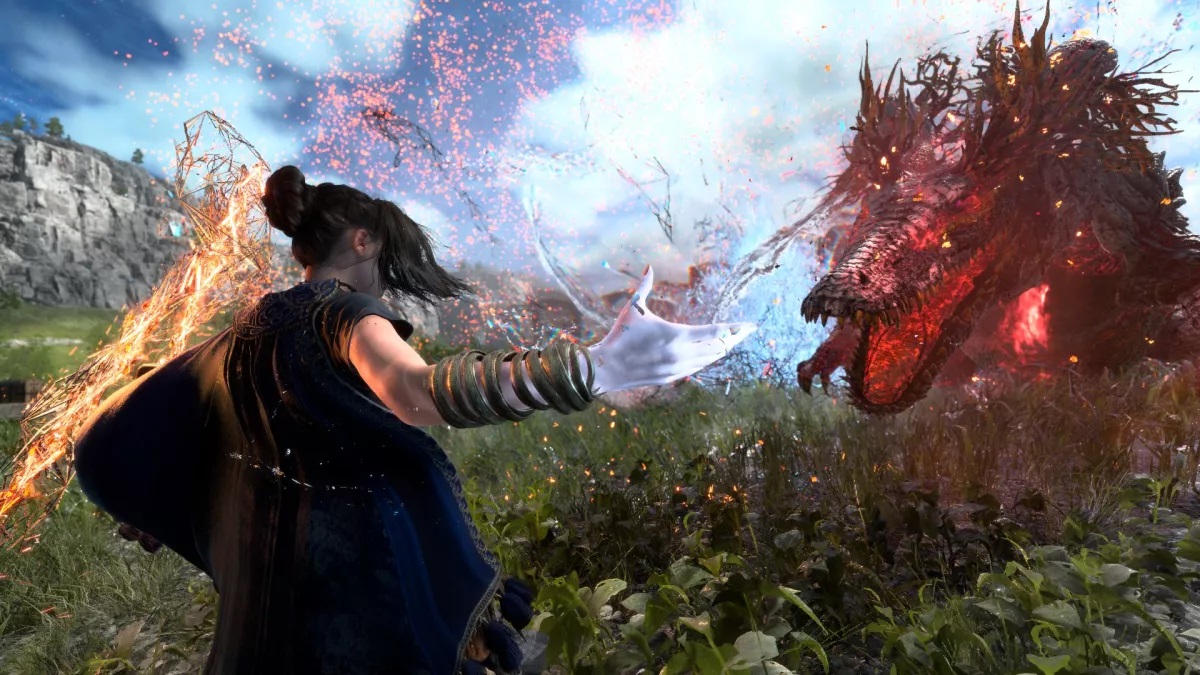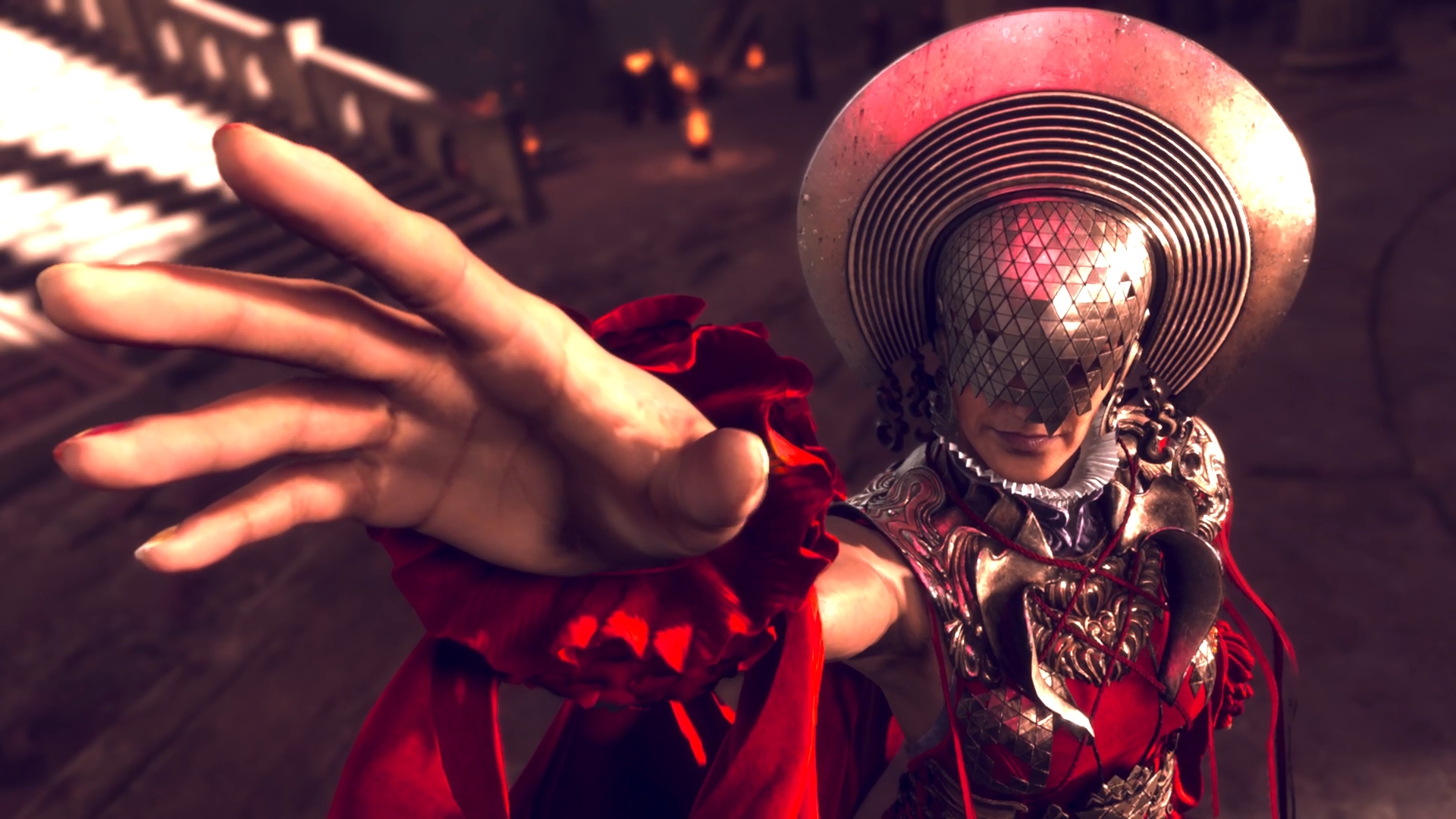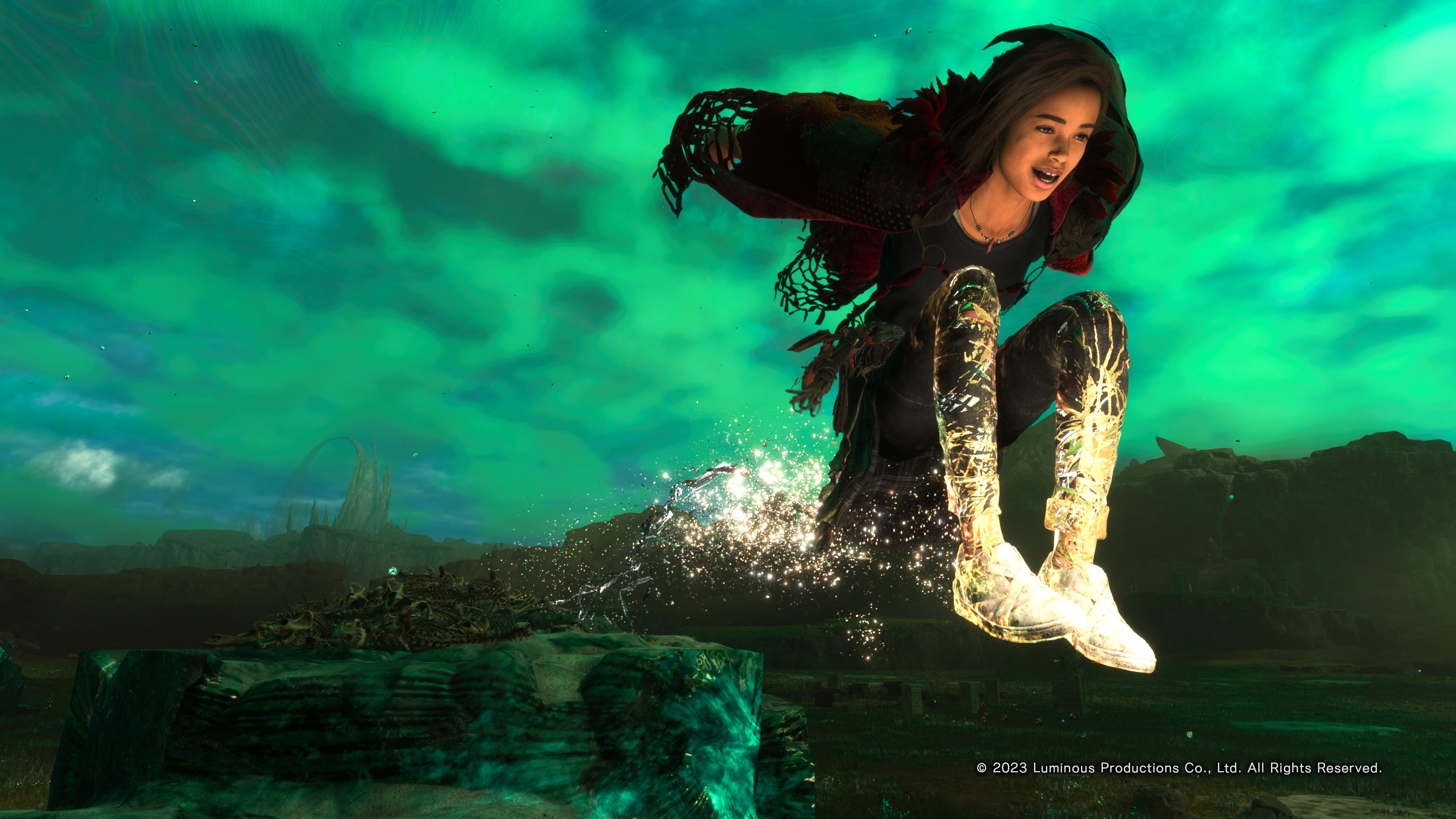The one design change that could have turned Forspoken into a great experience
Spoken for

Sign up for breaking news, reviews, opinion, top tech deals, and more.
You are now subscribed
Your newsletter sign-up was successful
It’s getting increasingly fiddly to tell a good story in a big game. Indies are finding new stories to tell all the time, and brain-tickling ways to convey them. Pentiment’s font-obsessed medieval tableaus and southern gothic Norco are testaments to that. But in triple-A land, brilliant narrative is finding it harder to make itself heard.
For every God of War, Horizon: Zero Dawn, and The Last of Us re-reboot, there’s a big, sad pile of titles whose names we’ve already forgotten because they buckled under the weight of their own budgets and headcounts. Forspoken, very unfortunately, is only the latest in that lineage.
It’s particularly unfortunate because the writing team Luminous Productions hired for the project reads like a games industry Harlem Globetrotters: Gary Whitta, Amy Hennig, Allison Rymer, and Todd Stashwick are all credited, and you do get the sense that some talented minds built the world of Forspoken and populated it with three-dimensional people. But you must root around in a lot of uninspiring gameplay to find it.
As you may have read in the game’s tepid review coverage, Forspoken’s a particularly silty and stilted experience that bombards you with cutscenes, holds you pinned in place when those cutscenes are over to make you listen to a bit more conversation, and barely shakes the feeling of being one long tutorial mission full of explanatory menus and basic gameplay passages with training wheels on, right up until the credits roll.
Untapped potential

For all the flak that protagonist Frey has taken for being a motor mouth and offering constant interjections during gameplay, this is a shame because I think she’s a good player-character. Good, not quite great – there’s an untapped vein of witty observations about fantasy RPG tropes that she often circles around but never quite finds a punchline for, and that’s frustrating. But when you compare her to your typical Far Cry or Call of Duty protagonist, she suddenly seems like Oscar Wilde.
The fantasy world of Athia, too, deserved a more satisfying and illuminating explanation. It’s not that this dimension is especially novel, it’s not – take away the crystals and quiffs from a Final Fantasy game, and this is what’s left over – but the fact that you’re experiencing it through the eyes of someone from our familiar world is, once again, ripe with untapped potential.
The reasons it falls short as an experience are complicated, because modern triple-A is complicated
It should be a landscape for knowing parody and fourth wall breaks, and you can tell that’s sometimes on Forspoken’s creators’ minds. The residents of Athia are bewitched by Frey’s smartphone, for example, and wearable sidekick Cuff (more of a bracelet, really) spends the whole game mispronouncing Frey’s native New York as though it were a locale from a Tolkien story.
Sign up for breaking news, reviews, opinion, top tech deals, and more.
But just when you think Forspoken will say something funny and insightful about the genre, it seems to get bogged down in plot again. And the plot’s not what’s interesting here, it’s the premise.
So Forspoken lies stuck between being an open-world action RPG that’s all about letting you explore and empower yourself, like good open-world action RPGs should, and being a Quantic Dream-style interactive cinema experience that places the performance capture of its cast at center stage, boils down the interactions to the simplest terms and gives the player a slick movie whose pace and plot they can affect. And those things do not blend well together. So the game falls short.
The reasons it falls short as an experience are complicated, because modern triple-A is complicated. Developers are working with powerful tools and delivering to advanced hardware systems, but the consoles have totally different architectures and operating systems. Their headcounts often tally up to hundreds and include locations across multiple time zones. I don’t profess to have one solution to solving all of Forspoken’s disappointing bits.
But I do reckon one single, but profound design change might have reversed its fortunes: real-time storytelling.
Immersion therapy

Forspoken’s cutscenes pull you out of the game and remind you that what you’re taking part in sits awkwardly between a game and a movie. Protagonist Frey’s actor’s (Ella Balinska) performance capture deserves a spotlight, but as strong as it is, it’s all for nothing if you don’t care about the story she’s part of.
What might Forspoken have felt like if it had committed to the Half-Life rule: never taking control away from the player, and never showing them the world from any other perspective than the protagonist’s?
It’s a lot easier to achieve in first-person, admittedly, and Forspoken’s mechanical raison d’etre is magic parkour traversal and spell-throwing combat that is much better suited to third-person gameplay. But it’s not impossible.
Rockstar is the master of real-time storytelling in third-person games. There are cutscenes, of course, but much of the narrative heavy lifting in GTA 5 and Red Dead Redemption 2 is done in real-time as you journey by car or steed from point A to point B. The game knows exactly how long it takes you to travel the distance, so it knows how much dialogue it can get you to listen to along the way.
It doesn’t have to force your hand or keep you on rails. And if something happens during the journey that distracts you, a Rockstar game knows that’s better for the overall experience. It can pick the conversation back up later, and it does. So, go after the Strangers and Freaks encounter, enjoy feeling like part of a world that’s happening around you, not to you.

Given that Forspoken’s premise is about being torn away from the real world (and a particularly grim corner of it, too) and flung into somewhere impossible and alien, an unbroken real-time design structure seems to offer the maximal impact. Let us feel what it’s like to go through the looking glass, don’t just tell us about it.
The knock-on effects to other gameplay elements would be profound, too. Without menus to rely on when it needs to tell you about a new ability, upgrade system or minimap icon (and crikey, does Forspoken ever rely on those menus) the game designers would be forced to create scenarios that explain each mechanic.
To recall Valve’s old masterwork one more time, Half-Life never stopped you in your tracks to explain that you can smack open crates with your crowbar for supplies or showed you a series of menus about how the Gravity Gun worked. It just put a crowbar or a Gravity Gun in your hands, and then guided you into the next area where something irresistible not to smash or pick up was waiting. Tutorial done.
FromSoftware knows how to do that better than anyone in the third-person game. Elden Ring might have conceded a few menus here and there, but you’re learning everything on the job in Soulsborne games, like a terrified plumbing apprentice in pauldrons. Give player a thing, present them with a situation where they will use said thing. Player learns about how to use thing. Player votes for game in GOTY polls.
It’s too late now, of course. Hi-Fi Rush has been outselling Forspoken on PC during its launch week, and that doesn’t bode well for a sequel. This may well be our only means of exploring Athia and hanging out with Frey, tedious pacing and all. But stranger things have happened – like a rhythm-action game outselling a triple-A open-world RPG on its launch week – so if we ever do see Forspoken 2, let’s experience it as one, unbroken and immersive narrative.

Ad creative by day, wandering mystic of 90s gaming folklore by moonlight, freelance contributor Phil started writing about games during the late Byzantine Empire era. Since then he’s picked up bylines for The Guardian, Rolling Stone, IGN, USA Today, Eurogamer, PC Gamer, VG247, Edge, Gazetta Dello Sport, Computerbild, Rock Paper Shotgun, Official PlayStation Magazine, Official Xbox Magaine, CVG, Games Master, TrustedReviews, Green Man Gaming, and a few others but he doesn’t want to bore you with too many. Won a GMA once.